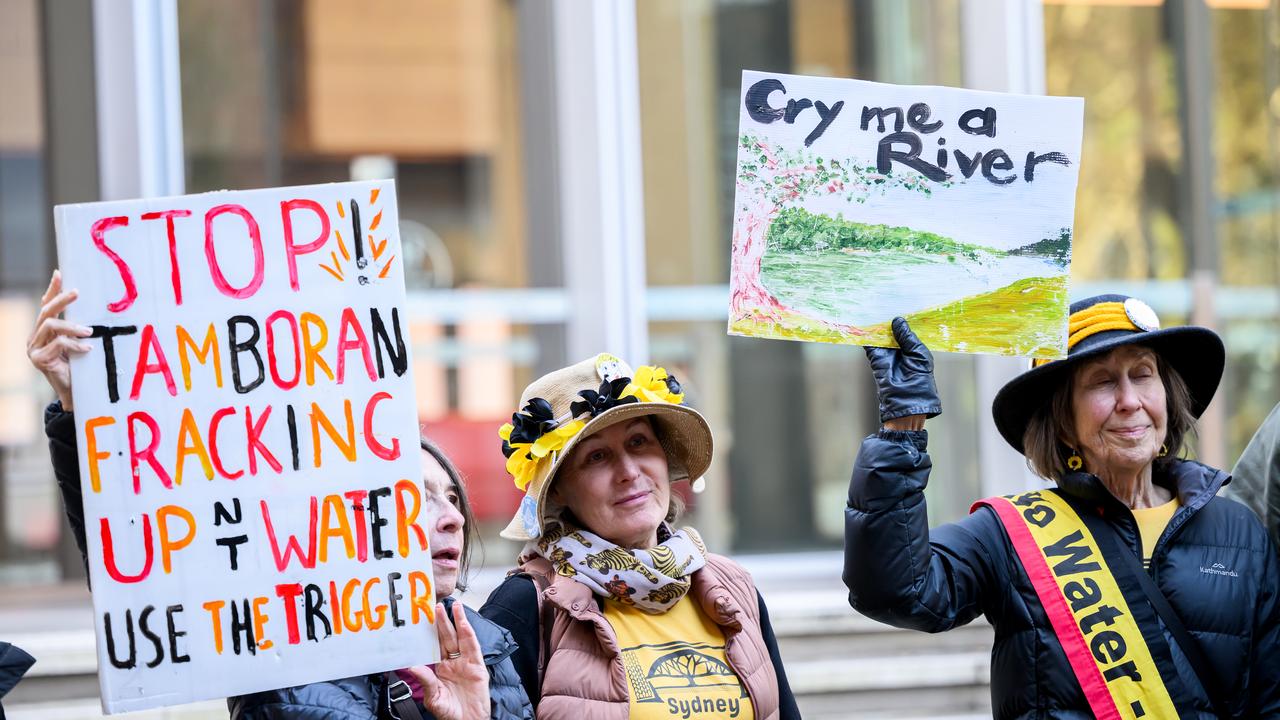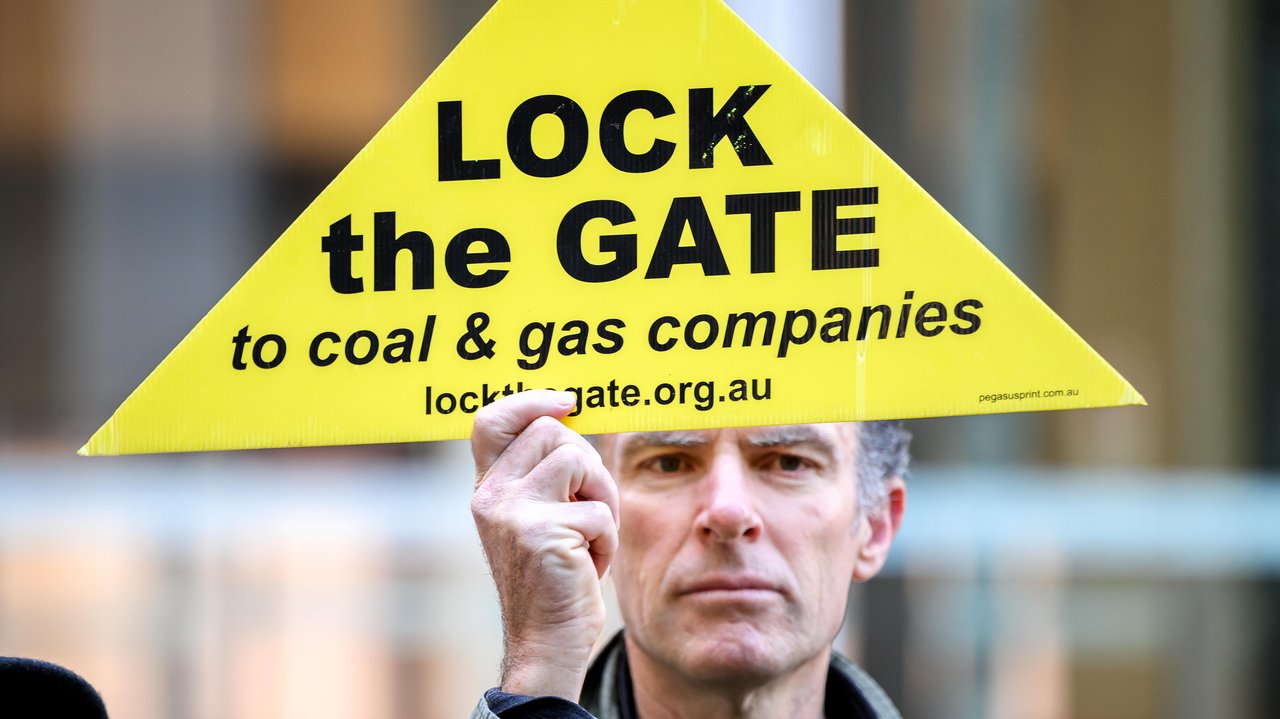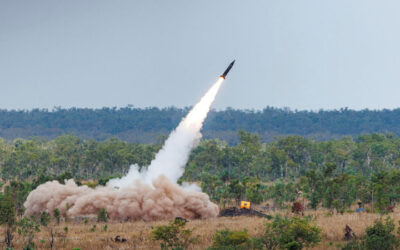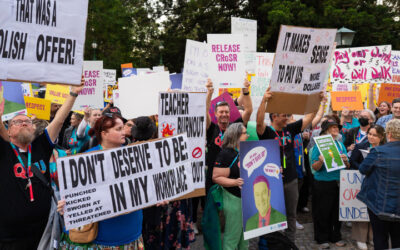A resources company is defending its commitment to environmental standards as it fights a landmark legal challenge to fracking under expanded national laws.
Tamboran B2 has been given the green light to explore 15 gas wells in the Northern Territory’s Beetaloo Basin, which concerns an environmentalist group.
Lock The Gate Alliance is asking the Federal Court to prevent the project from progressing until the government can assess the impacts under the water trigger provisions of national environmental laws.
Research and investigations head Georgina Woods said the group’s legal challenge was “very important” because work had started on the Shenandoah fracking pilot.
“We are very concerned about the potential of the project to significantly impact groundwater resources through contamination,” she said before the first day of the court hearing.
“The whole of the Northern Territory relies on groundwater. Water is life up there.”
But a spokesperson for Tamboran B2 said the company was “deeply committed to upholding the highest environmental standards” and the project had undergone “rigorous assessment and approvals”.
The company said its gas well exploration bid was reviewed by two independent bodies, one of which concluded the potential impact on water was minor.
“This Federal Court action is the latest in a series of failed attempts by those wishing to delay the development of the Beetaloo Basin that would deny the economic and social benefits of the project to the people of the Northern Territory,” the spokesperson said.

Tamboran B2 is appraising the sites with an eye to extracting natural gas through fracking, which involves injecting a combination of water, chemicals and sand into deep shale layers underground at high pressure.
Its parent company Tamboran is the largest acreage holder and operator in the Beetaloo Basin, with about 1.9 million net prospective acres.
James Hutton SC, for Lock The Gate Alliance, said it was the largest gas project of its kind in the Northern Territory and involved drilling through “critically important” aquifers.
He argued the drilling, appraisal, production and decommissioning of the wells would have a significant impact on delicate ecosystems and pristine areas previously undisturbed by humans.
Mr Hutton is pushing for an injunction under the federal water trigger legislation, which was expanded in 2023 to require the assessment of the impact of large coal mining and coal seam gas projects on water resources.
Tamboran B2 had not yet referred the project to the national regulator because it was only at the approved exploration stage, its barrister Edward Muston SC told the court.

He said there was no likelihood of any significant impact on water from the project thanks to a series of safeguards, which he likened to a stack of Swiss cheese slices.
“What’s the likelihood of all of those pieces of Swiss cheese that are sitting together lining up in a way which means the holes will align?” Mr Muston said.
“We would say vanishingly small in this case.”
Ms Woods said Lock The Gate Alliance felt compelled to bring the legal action because fracking was an “inherently risky activity” that risked contaminating precious groundwater.
Anti-fossil fuels activists gathered outside the courthouse on Monday morning to show their support for Lock the Gate Alliance, holding signs declaring “No water, no life” and “Cry me a river”.
“Stop Tamboran fracking up NT water, use the trigger,” another read.
The Federal Court case is the landmark legal challenge launched against fracking under the water trigger and is expected to run for several days.
Australian Associated Press is the beating heart of Australian news. AAP is Australia’s only independent national newswire and has been delivering accurate, reliable and fast news content to the media industry, government and corporate sector for 85 years. We keep Australia informed.





